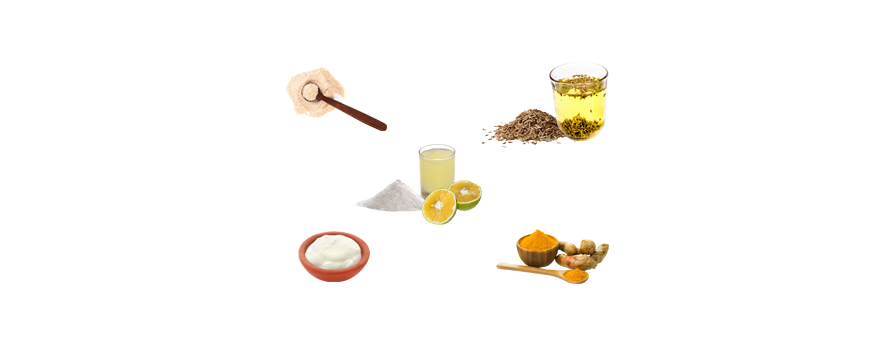Ayurvedic Winter Skincare for women prioritizes holistic well-being. Embrace Abhyanga, gentle cleansers, and hydrating masks with natural ingredients. Opt for Ayurvedic moisturizers, stay internally hydrated, and follow a Vata-pacifying diet. Shield skin from the cold with protective clothing, and practice mindful lifestyle habits. This holistic approach, tailored to individual needs, ensures radiant and nourished skin during the winter season.
Here’s a comprehensive guide to Ayurvedic winter skincare for women
Abhyanga (Oil Massage):
Ayurvedic practitioners at Birla Ayurveda suggests to embrace the ancient practice of Abhyanga, or oil massage, which is a cornerstone of Ayurvedic self-care. Choose warming oils such as sesame, almond, or coconut oil. Heat the oil slightly and massage it onto your entire body before taking a warm shower. This not only hydrates the skin but also promotes circulation and helps alleviate the dryness associated with Vata imbalance.
Gentle Cleansing:
Opt for a gentle, natural cleanser that cleans without stripping away the skin’s natural oils. Ayurvedic ingredients like honey, aloe vera, or chickpea flour can be used for cleansing. A simple DIY cleanser involves mixing chickpea flour with a bit of water or rosewater to create a paste. Gently massage it onto your face and rinse with lukewarm water.
Hydrating Face Masks:
Combat winter dryness with hydrating face masks. Ingredients like honey, yoghurt, mashed avocados, or even aloe vera gel can be used to create nourishing masks. Apply these masks to your face and leave them on for about 15-20 minutes before rinsing with warm water.
Ayurvedic Moisturizers:
Choose Ayurvedic moisturizers that contain nourishing herbs and oils. Look for ingredients like ashwagandha, manjistha, liquorice, or sesame oil, known for their skin-loving properties. These ingredients help balance Vata dosha and keep the skin moisturized.
Herbal Steam:
Treat your skin to herbal steam to open up pores and hydrate the skin. Boil water and add herbs like neem, tulsi (holy basil), or chamomile. Inhale the steam for a few minutes, allowing the herbal properties to penetrate and refresh your skin.
Stay Hydrated from Within:
Hydration is crucial for healthy skin, and this involves both external and internal care. Drink warm water throughout the day to stay hydrated. Herbal teas like ginger or cinnamon can be not only soothing but also beneficial for internal hydration.
Balancing Diet:
Follow a Vata-pacifying diet to balance the effects of the season on your skin. Include nourishing and warming foods such as ghee, sesame seeds, nuts, and seasonal fruits and vegetables. Warm, well-cooked meals are easier to digest and provide essential nutrients for skin health.
Protect from Harsh Elements:
Shield your skin from harsh winter elements by wearing protective clothing. Use scarves, gloves, and hats to cover exposed skin, especially when stepping out into cold winds. This helps prevent excessive dryness and windburn.
Avoid Hot Water:
While hot showers may seem tempting in winter, they can contribute to dryness. Opt for lukewarm water instead, as it helps maintain the skin’s natural oils without stripping them away.
Nasya Oil:
Nasya involves the application of herbal oil to the nasal passages. In winter, when the air is dry, this practice can help keep the nasal passages moisturized, preventing discomfort and potential imbalances.
Herbal Supplements:
Consider incorporating Ayurvedic herbs and supplements that support skin health. Triphala, a blend of three fruits, is known for its detoxifying properties and can be beneficial for overall skin wellness. Neem supplements are also popular for their skin-clearing and purifying effects.
Adequate Sleep:
Ensure you get enough restful sleep, as adequate sleep plays a crucial role in overall skin health. Establish a calming bedtime routine, and consider practices like meditation or warm herbal tea to promote relaxation.
Mindful Lifestyle Practices:
Incorporate mindfulness practices into your routine to manage stress. High-stress levels can negatively impact skin health. Yoga, meditation, and deep breathing exercises can help balance the mind and body, contributing to healthier skin.
Consult an Ayurvedic Practitioner:
For personalized advice, consult with an Ayurvedic practitioner or you can book an appointment at your nearest Birla Ayurveda centre. They can determine your unique constitution (Prakriti) and any current imbalances (Vikriti) to provide tailored recommendations for skincare, diet, and lifestyle adjustments.
Remember, Ayurvedic practices are individualized, and what works for one person may not be suitable for another. By embracing these Ayurvedic winter skincare for women, you can nourish your skin, balance Vata Dosha, and promote overall well-being during the winter months.



